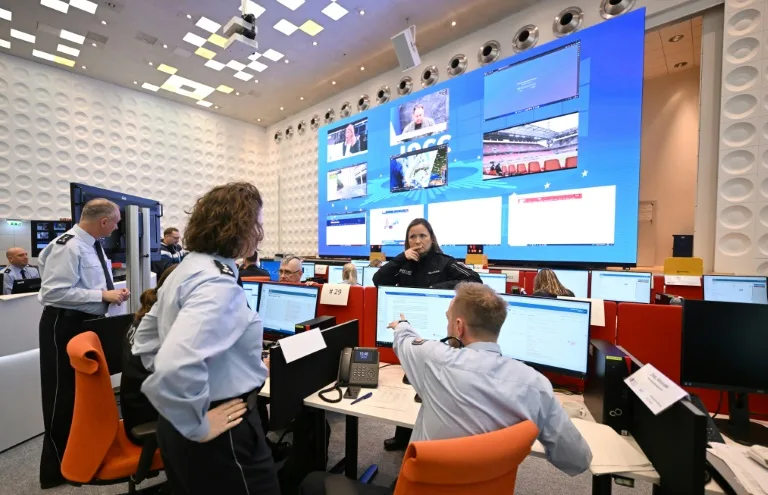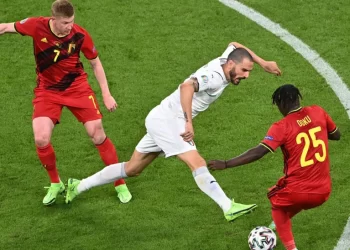Germany is preparing to face a significant security challenge as it hosts Euro 2024 this summer amidst a tense global backdrop marked by conflicts in Ukraine and the Middle East.
The European Championship organizers are bracing for potential threats ranging from hooliganism to terrorist attacks and cyber threats.

Security measures will aim to protect approximately 2.7 million fans, 24 team base camps scattered across the country, and ten stadiums hosting 51 matches from June 14 to July 14.
Designated fan zones are anticipated to draw around 12 million visitors.
"Tournament director Philipp Lahm emphasized that security has been the top priority from the start."
Germany has taken an unprecedented step by inviting some 300 security experts from participating nations to participate in a monitoring project at the International Police Cooperation Centre (IPCC) in Neuss.
These experts, along with officials from Germany, Europol, and UEFA, will monitor the situation during the tournament from a large conference room equipped with 129 computers and a 40-square-meter screen.
"Each country's delegation size at the IPCC will correspond to the number and potential risk posed by their fans," stated Oliver Strudthoff, IPCC director.
"All police leave during the tournament has been suspended," ensuring maximum police presence at matches.
Germany will implement security controls at all nine borders and increase police presence in trains, stations, and airports.
French gendarmes will assist German police in joint rail patrols and matches involving the French team.
The British government will prevent over 1,600 English and Welsh supporters with stadium bans due to previous violent behavior from traveling to Germany for the tournament.
Interior Minister Nancy Faeser announced enhanced security measures for the Ukrainian national team.
Between 800 and 1,300 police officers will be deployed around stadiums for each match, with three security perimeters established to prevent unauthorized entry with weapons or explosives.
Fan zones, particularly the one at Berlin's Brandenburg Gate, pose security challenges due to their vulnerability as "soft targets."
The German army will monitor the skies from the National Air Security Center to oversee drone activity.
"Security expert Johannes Saal highlighted the heightened risk of terrorist attacks during major sporting events, given the current global tensions."
The security situation remains tense against the backdrop of conflicts and the persistent threat of extremist activities.



















